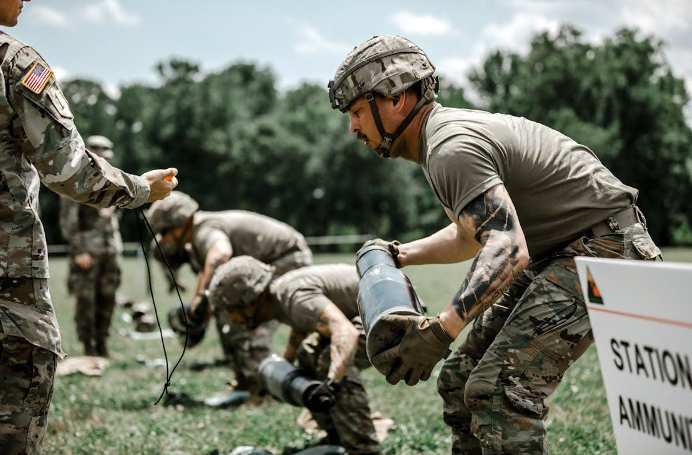
Military installations shape local communities in profound ways.
From economic boosts to environmental challenges, these bases influence everyday life. They create job opportunities, affect housing markets, and introduce unique social dynamics.
Understanding these impacts offers valuable insights into the intricate relationship between military presence and community development. So, let’s look further into how military bases can impact their local communities.
Military installations often act as economic catalysts in their communities. Bases offer a wide range of jobs, from civilian contractors to local suppliers.
Restaurants, stores, and real estate developers thrive around military bases due to increased foot traffic and resident demand.
Moreover, servicemembers spend money locally on essentials like groceries and entertainment. This infusion boosts small businesses, which stimulates the broader economy.
For instance, Fort Hood in Texas significantly contributes to the surrounding area's prosperity by providing thousands of jobs directly linked to its operations.
And the Joint Base McGuire-Dix-Lakehurst in New Jersey significantly impacts the local economy. It employs thousands of military and civilian personnel, driving growth for businesses in nearby towns.
Overall, military bases provide more than defense - they foster robust community economies through steady employment opportunities.
It’s not all good news. Military bases now face scrutiny for their environmental impact. A notable issue is water contamination from Aqueous Film Forming Foam (AFFF), which is used to extinguish fires on military installations.
This foam contains per- and polyfluoroalkyl substances (PFAS), which persist in the environment and pose health risks.
Many communities near bases, like those around Naval Air Station Jacksonville in Florida, report contaminated drinking water due to PFAS leaching into groundwater supplies.
Efforts to mitigate this include transitioning to alternative firefighting agents and investing in remediation projects. But challenges remain significant, as PFAS are resistant to conventional water treatment methods.
If you have developed severe thyroid disease, ulcerative colitis, Parkinson’s Disease, or certain cancers, and you live or have lived near a military base, you should definitely look into AFFF contamination claim details. You may be entitled to compensation.
Military bases must do more to balance operational needs with environmental stewardship to protect local ecosystems while ensuring public health safety for surrounding communities.
Military installations significantly influence local housing markets.
Proximity to a base often increases demand for rental properties, as military personnel frequently seek short-term accommodations.
This surge can drive up rental prices, making it challenging for non-military residents to afford housing. For example, the area surrounding Fort Bragg in North Carolina experiences increased demand and limited supply due to its large active-duty population.
Moreover, frequent relocations by military families contribute to fluctuating home sales cycles, impacting property values both positively and negatively over time.
While some developers capitalize on this by building new homes or apartment complexes specifically targeting military tenants, existing residents may face economic pressure due to rising costs influenced by the presence of nearby bases.
The transient nature of military life means servicemembers and their families often relocate, which can impact community cohesion.
These frequent moves create diverse, multicultural neighborhoods as people from various backgrounds converge. While this diversity enriches cultural exchanges, it also challenges long-term relationship-building within the community.
Schools near bases experience fluctuating enrollments with incoming and outgoing students each year. This instability can affect educational planning and resource allocation for local school districts.
However, many communities have embraced these dynamics by fostering strong support networks for military families through dedicated programs and events. Such efforts help integrate newcomers while maintaining a sense of belonging among residents who call these base-adjacent areas home.
Military bases often bring unique public safety challenges to nearby communities.
Regular training exercises and operations can generate noise pollution, which disrupts daily life for residents living close by.
Explosive ordnance disposal activities or flight drills from air bases sometimes create additional concerns over accidental harm or property damage.
And traffic congestion around bases is another issue during peak commute times when personnel enter or leave the facility. This increase in vehicular movement can elevate the risk of road accidents, affecting local infrastructure and emergency response services.
However, base commanders work with local authorities to address these issues through things like noise abatement programs and traffic management plans aimed at minimizing impact on surrounding areas while ensuring military readiness.